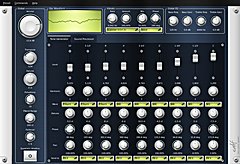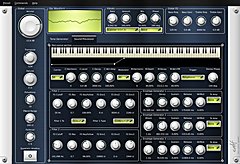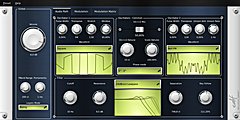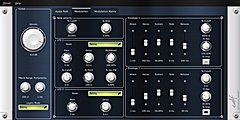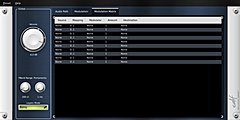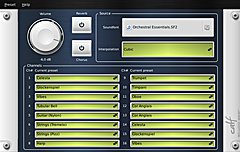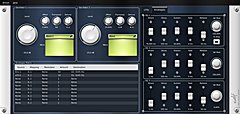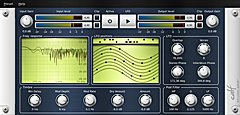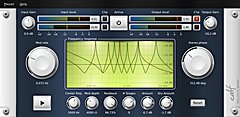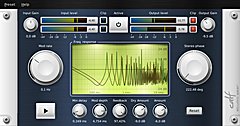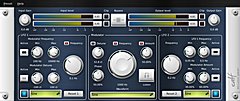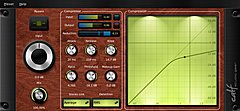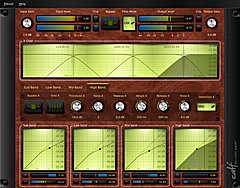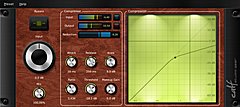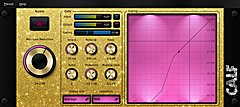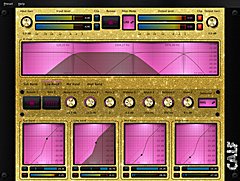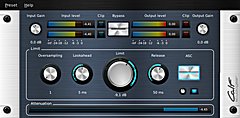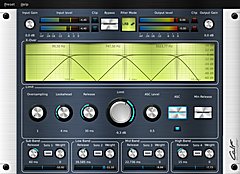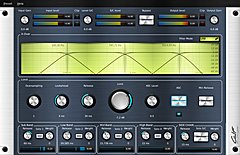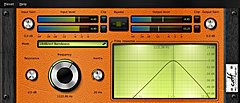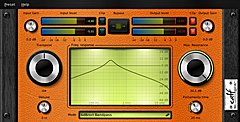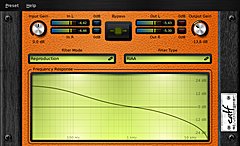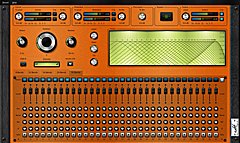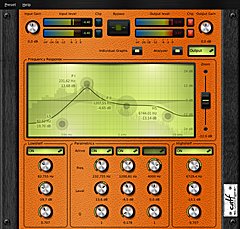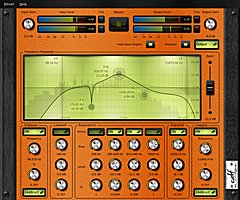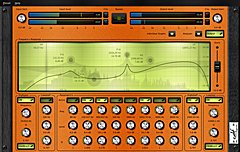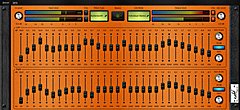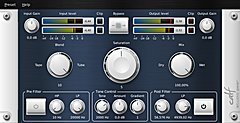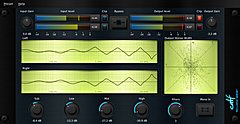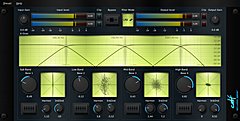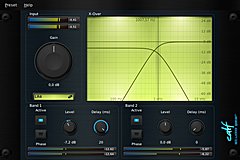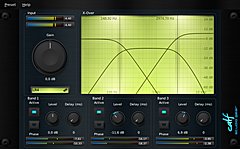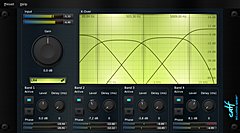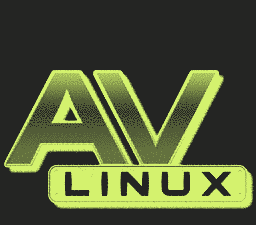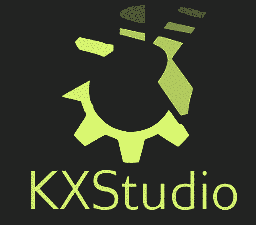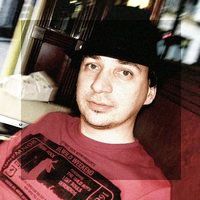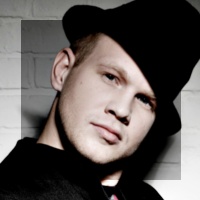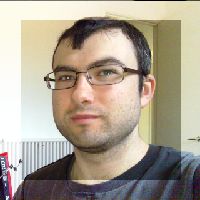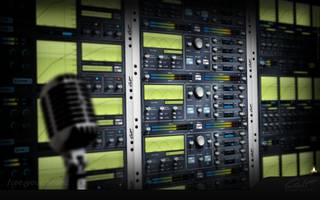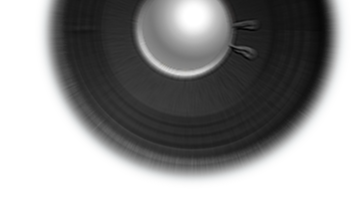The screenshots below show the different themes available which doesn't mean that the plugins always appear like in these examples but with the theme the user selects in the preferences dialog.
 Instruments
Instruments
Calf Organ
A versatile organ/pad synthesizer, capable of producing many types of sounds:
- tonewheel organs (up to 9 drawbars)
- solid state organs (9 independent oscillators with many waveforms to choose from, individual panning, phase shift and detune for each oscillator)
- strings-like or choir-like pads (thanks to a set of long looped samples generated using padsynth algorithm invented by Nasca Octavian Paul)
- fat basses and searing leads
The sound from some or all oscillators can be processed using 2 independent (but connectable)
filter sections, controlled by up to 3 ADSR envelopes. A vibrato/chorus/phaser section
makes the sound more vivid.
Development: Krzysztof Foltman
Sample generation algorythm: Nasca Octavian Paul
Calf Monosynth
Simple monophonic synthesizer with 2 oscillators, multimode filter and an envelope. Designed to maximize flexibility while minimizing the number of controls. Useful for synth basses and leads.
Development: Krzysztof Foltman
Calf Fluidsynth
Calfs implementation of a Fluidsynth SF2 sample player.
Development: Krzysztof Foltman
Calf Wavetable (experimental)
This synthesizer is based on predefined wavetables with a ADSR section.
Development: Krzysztof Foltman
index
 Modulation effects
Modulation effects
Calf Multi Chorus
Multi-tap stereo chorus with adjustable number of voices. Adds warmth and richness, especially if you give it a lot of CPU power. A lot of options make this effect highly flexible in expression.
Development: Krzysztof Foltman
Calf Phaser
A pretty basic stereo phaser with all typical settings (center frequency, modulation depth, LFO rate
number of stages, feedback, amount, L-R LFO phase difference and amount).
Provides a LFO reset button for consistent song playback. The number of stages goes up to 12.
Development: Krzysztof Foltman
Calf Flanger
Simple stereo flanger with linear interpolation. If "zipper noise" of basic flanger effects
is driving you mad, try this one!
Development: Krzysztof Foltman
Calf Rotary Speaker
Work in progress (read: still sounds rather boring). Can morph between slow and fast mode
when switched using MIDI, control ports or automation.
Development: Krzysztof Foltman
Calf Pulsator
Calf Pulsator is something inbetween an autopanner and a tremolo, but it can produce funny
stereo effects as well. Pulsator changes the volume of the left and right channel based on a
LFO (low frequency oscillator) with different waveforms and shifted phases.
Development: Markus Schmidt
Calf Ring Modulator
Calf Ring Modulator extends the typical ring modulation by two LFO which are able to
modulate different aspects of the modulation to produce crazy effects.
Development: Markus Schmidt
index
 Delay effects
Delay effects
Calf Reverb
Simple reverb with basic controls and relatively neutral sound. No dreaded metal barrel sound,
but at the expense of higher CPU use and less time density.
Like most artificial reverberators, it is not suitable for every instrument,
but try it on vocals, guitars or Calf synths, and you will like it.
Development: Krzysztof Foltman
Calf Vintage Delay
A very simple simulation of tape echo, with a filter in a feedback loop and BPM-based time setting.
The number of controls is limited, but all the essential stuff is there.
Suitable for synths, guitars and almost anything else.
Development: Krzysztof Foltman
Calf Compensation Delay Line
Compensation Delay Line is a metric based delay to compensate differing positions of microphones or speakers.
Development: Vladimir Sadovnikov
Calf Reverse Delay
The Reverse Delay reverses the input signal while feeding the delay buffer resulting in a reversed sound effect.
Development: Drgreenthumb
index
 Dynamics
Dynamics
Calf Compressor
Smooth sounding dynamic compressor with a variety of settings, written by Thor Harald Johansen. RMS/peak modes, A-weighting, metering - feels like real studio gear!
Development: Thor Harald Johansen, Krzysztof Foltman
Calf Sidechain Compressor
Based on Thor's compression routine, the Calf Sidechain Compressor is the universal tool
for any problem concerning sound dynamics. A highly flexible filter stage in the sidechain
lets you eliminate dynamic rumbling, clipping sibilants and similar disturbances.
The sidechain offers split modes, too.
Development: Markus Schmidt, Thor Harald Johansen
Calf Multiband Compressor
The first multiband compressor with real plugin capabilities on linux audio worksations - four channels with separate compression stages will blow up the loudness of your tracks. This one is also based upon Thor's compression routine.
Development: Markus Schmidt, Thor Harald Johansen
Calf Mono Compressor
Single banded compressor based on a different compression routine than the main Calf Compressor.
Development: Damien Zammit
Calf Deesser
Due to it's flexibility in sound and options Thor's compressor constitutes the core of Calf Deesser.
An optimized filter stage in the sidechain gives you great control over dynamic highs. This deesser
offers a split mode for special purposes.
Development: Markus Schmidt, Thor Harald Johansen
Calf Gate
Because of the flexibility of Thor's compression detection we were able to use it as a solid
base for a noise gate. The controls may seem a bit unusual but they provide high
flexibility in detecting and eleminating your noise floor - Calf Gate bites off your
sustain!
Development: Damien Zammit, Thor Harald Johansson
Calf Sidechain Gate
The same flexible sidechain filter stage that is used in the Calf Sidechain Compressor turns Calf Gate
into a very precise gating plugin. Especially in drum recordings Calf Sidechain Gate offers
complete control over the audibility of your drums. You want to cut away the complete lower end of a playback
leaving the bassdrum where it is - a split mode makes it happen.
Development: Markus Schmidt, Damien Zammit, Thor Harald Johansson
Calf Multiband Gate
Four channels with separate gate stages provide enough flexibility to clean up really problematic material like a humming and noisy narrator. This one is also based on Damien Zammit's gate routine.
Development: Markus Schmidt, Damien Zammit, Thor Harald Johansson
Calf Limiter
The broadband Limiter included in the Calf suite uses lookahead technology to smoothen the gain reduction process
while preventing your signals from rising above the selected threshold.
Development: Christian Holschuh, Markus Schmidt
Calf Multiband Limiter
The Multiband Limiter brings presence, punch and loudness to your mix. Combined with the Multiband Compressor
Calf is a good choice for mastering your material to a professional level. The weighting of single bands prevents
certain ranges of the signal from being cut off or pressed to the background.
Development: Markus Schmidt, Christian Holschuh
Calf Sidechain Limiter
The Sidechain Limiter is mainly acting like the Multiband Limiter but provides an additional stereo channel to feed material into which is supposed to always stay in front of your mix. This channel is limited and weighted in the same manner the frequency bands are treated.
Development: Markus Schmidt, Christian Holschuh
Calf Transient Designer
Transient Designer is used to modify the envelope of percussive signals (signals with a defined attack or transient) like drum sounds or percussion instruments. It is able to remove or to boost the attack or the release of a signal independent from its real gain in contrast to the operation of compressors or expanders.
The Calf Transient Designer is able to add a defined sustain phase to the signal. A customizable filter for the envelope narrows the frequency range triggering the Transient Designer.
Development: Christian Holschuh, Markus Schmidt
index
 Filter and equalizer
Filter and equalizer
Calf Filter
Selectable 12dB/24dB/36dB rolloff, lowpass or highpass with inertia/smoothing for cutoff for more "analog" sound when tweaking. Particularly useful for drum loops or guitars in house music.
Development: Krzysztof Foltman
Calf Filterclavier
This filter is controllable via MIDI and follows the received Note-On signals with its frequency settings.
Development: Hans Baier
Calf Envelope Filter
This plug-in is also known as Auto-Wah - a filter following the
envelope of a signal. The Calf version provides a couple of filters
to choose from together with some fine grained settings of the envelope
to frequency calculation like setting a curve from convex over linear
to concave. Additionally there's a sidechain input to use a different
signal for the envelope than for the processing itself.
Development: Markus Schmidt
Calf Emphasis
This device adds or substracts different frequency response curves in order to create standard compliant material for different media like emphased CD or vinyl records.
Development: Damien Zammit
Calf Vocoder
Modulates the frequency response of a carrier signal by measuring the response of a modulator signal in realtime. In other words, let your guitar speak. Lots of settings like the amount or quality of bands will give complete control over sound and CPU load.
Development: Markus Schmidt, Christian Holschuh
Calf 5-Band Equalizer
Based on different filters these series of equalizers was invented to provide some specialized tools for everyday's signal processing. A gain of +-36dB and maximum slew rates for the peak filters offer great flexibility for eliminating or creating resonances and shaping your frequency range. All bands are capable of processing stereo, left, right, M-S mid or M-S side individually. An Analyzer in the display provides a visual representation of your settings. This version offers two shelving filters and 3 peak filters. It's the right choice for some minor frequency range adjustments.
Development: Markus Schmidt, Krzysztof Foltman
Calf 8-Band Equalizer
Based on different filters these series of equalizers was invented to provide some specialized tools for everyday's signal processing. A gain of +-36dB and maximum slew rates for the peak filters offer great flexibility for eliminating or creating resonances and shaping your frequency range. All bands are capable of processing stereo, left, right, M-S mid or M-S side individually. An Analyzer in the display provides a visual representation of your settings. This version offers a low and a high pass, two shelving filters and 4 peak filters and is the perfect replacement of a channel strip EQ.
Development: Markus Schmidt, Krzysztof Foltman
Calf 12-Band Equalizer
Based on different filters these series of equalizers was invented to provide some specialized tools for everyday's signal processing. A gain of +-36dB and maximum slew rates for the peak filters offer great flexibility for eliminating or creating resonances and shaping your frequency range. All bands are capable of processing stereo, left, right, M-S mid or M-S side individually. An Analyzer in the display provides a visual representation of your settings. This version offers a low and a high pass, two shelving filters and 8 peak filters and is designed to handle the real problems.
Development: Markus Schmidt, Krzysztof Foltman
Calf 30-Band Equalizer
This graphical equalizer is able to use different filters for the manipulation of your material.
Development: Drgreenthumb
index
 Distortion effects
Distortion effects
Calf Saturator
Universal distortion tool. Saturator can act as a guitar distortion as well as a harmonics generator. Some useful filters before and after the distortion stage and gapless adjustment between 2nd and 3rd harmonics give you a great flexibility in sound. The saturation stage is taken from Tom Szilakyi's TAP-plugin pack.
Development: Tom Szilagyi, Markus Schmidt
Calf Exciter
Filtered distortion to add brilliance to your tracks. The saturation stage is taken from Tom Szilakyi's TAP-plugin pack.
Development: Markus Schmidt, Tom Szilagyi
Calf Bass Enhancer
Harmonics for fattening the lower end. The saturation stage is taken from Tom Szilakyi's TAP-plugin pack.
Development: Markus Schmidt, Tom Szilagyi
Calf Tape Simulator
Calf Tape Simulator modifies signals as if they were recorded on a tape machine or tape deck.
It is able to simulate different aspects of magnetical recordings like loss of brilliance, noise,
softer transients, distortion/compression of the signal and mechanical tape threading path problems.
Development: Markus Schmidt, Christian Holschuh
Calf Vinyl
Calf Vinyl offers six sound generators (Motor, Static, Noise, Rumble, Crackle, Crinkle)
with individual pitch and gain, droning (controlled by rpm) and heavy filtering up to
ancient gramophone sounds.
Development: Markus Schmidt
Calf Crusher
The Calf Crusher lets you crush your signal by reducing the bit resolution. The reduction can be done in a linear or logarithmic way while the logarithmic way results in a much smoother sound in low volume signals.
On top of that, the edges, which are created by the bit reduction, can be anti-aliased. This lets you create a numerous variety of sound effects for your signal.
Development: Markus Schmidt, Christian Holschuh
index
 Tools
Tools
Calf Mono Input
Since Calf doesn't provide mono versions of the plugins yet, it is essential to split your
signal into stereo signals when used in an audio production environment like Ardour. The Mono Input has some useful
functions to deal with the split process like phase inversion and balance.
Development: Markus Schmidt
Calf Stereo Tools
This device is a toolbox for handling stereo signals. It is able to change M/S microphone signals
to L/R and vice versa. Switching the phase, muting a channel, widening the stereo base or delaying
one of the channels up to 20ms are some of the features of this input or mastering tool.
Development: Markus Schmidt
Calf Haas Stereo Enhancer
The Haas Stereo Enhancer widens your stereo material via a simple delay line.
Development: Vladimir Sadovnikov
Calf Multi Spread
Calf Multi Spread spreads your mono signal into stereo without any additional delay line – just by distributing the frequency spectrum equally between left and right. Choose the amount of filters per band and the direction of the distribution.
Development: Markus Schmidt
Calf Multiband Enhancer
Multiband stereo base and additional harmonics for widening your stereo image on four different frequency ranges.
Development: Markus Schmidt
Calf X-Over 2 Band
The X-Over series in Calf provides a comfortable and flexible way to split a signal in different frequency bands for feeding dedicated speaker setups or building your own multiband effects setups. This device separates the signal into two different frequency bands.
Development: Markus Schmidt
Calf X-Over 3 Band
The X-Over series in Calf provides a comfortable and flexible way to split a signal in different frequency bands for feeding dedicated speaker setups or building your own multiband effects setups. This device separates the signal into three different frequency bands.
Development: Markus Schmidt
Calf X-Over 4 Band
The X-Over series in Calf provides a comfortable and flexible way to split a signal in different frequency bands for feeding dedicated speaker setups or building your own multiband effects setups. This device separates the signal into four different frequency bands.
Development: Markus Schmidt
Calf Analyzer
The FFT-Analyzer of this package has a frequency domain display and a goniometer. The frequency chart
displays its information from various input modes like L/R, Average or Stereo;
it can draw lines or bars, logarithmic or linear graphing. Various output modes like Stereo Image, Stereo Difference
and even a Spectralizer with temporal domain are available. Lots of options provide full control of the way
the signal is processed and rendered.
Calf Studio Gear - Audio Plugins - Analyzer @ YouTube
Development: Markus Schmidt, Christian Holschuh
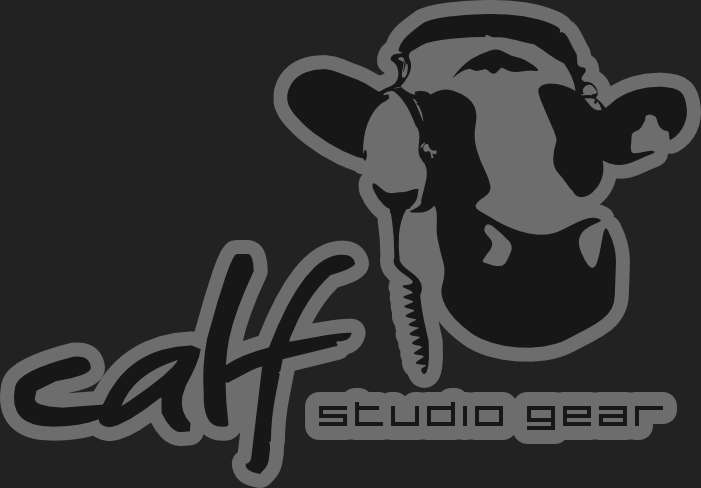
 Instruments and tone generators
Instruments and tone generators Modulation effects
Modulation effects Delay effects
Delay effects Dynamic processors
Dynamic processors Filters and equalizers
Filters and equalizers Distortion and enhancement
Distortion and enhancement Tools
Tools